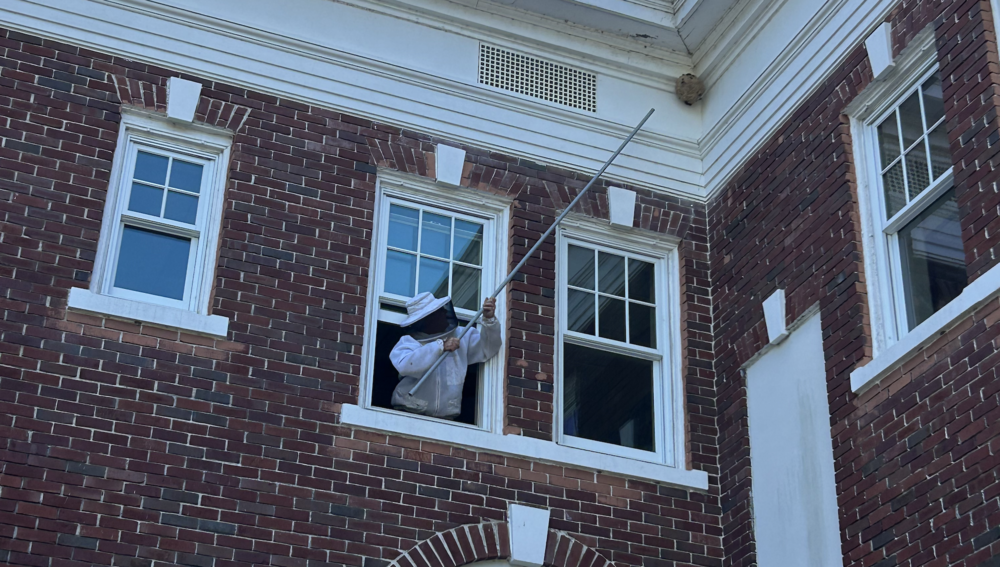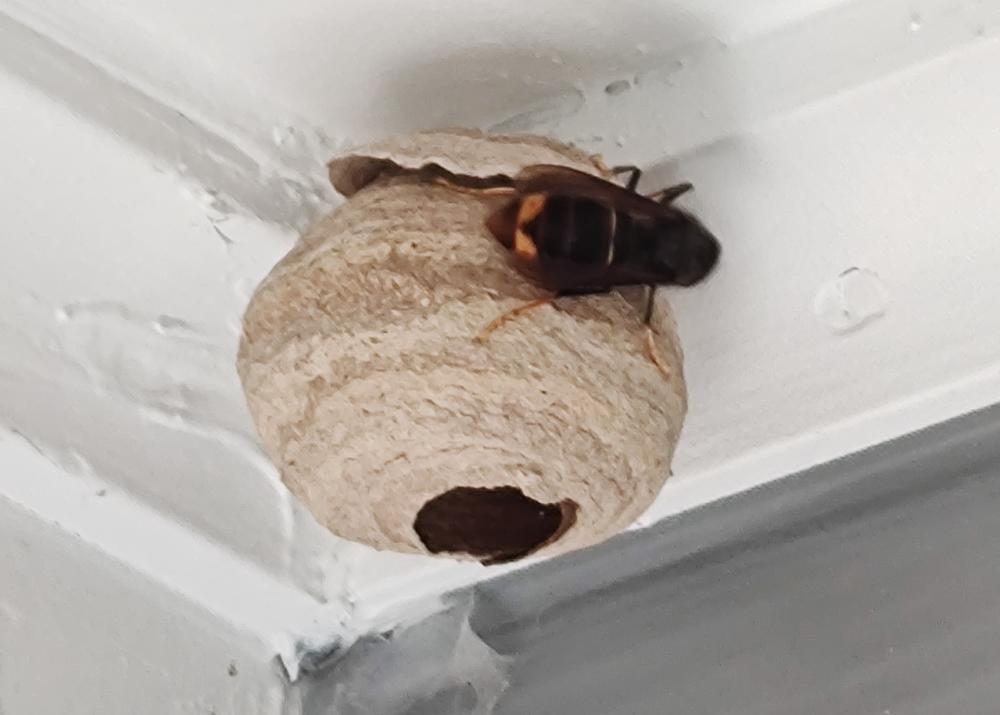
Caption
A man pokes at a yellow-legged hornet nest in the corner of a building with a stick. The nest was found and eradicated on June 19, 2024.
Credit: Georgia Department of Agriculture
|Updated: July 15, 2024 8:28 AM
LISTEN: The Georgia Department of Agriculture has put up nearly 1,000 hornet traps on Georgia's coast, hoping to eradicate the invasive species that preys on bees. GPB's Devon Zwald reports.

A man pokes at a yellow-legged hornet nest in the corner of a building with a stick. The nest was found and eradicated on June 19, 2024.
The Georgia Department of Agriculture is asking for the public's help to eradicate the yellow-legged hornet from Georgia’s coast.
The invasive species native to tropical and subtropical Asia that preys on bees was first found near Savannah last August.
Since then, 11 total nests — six this year — and 22 queens have been found and eliminated, all in and around Savannah, according to the Georgia Department of Agriculture.
"We're still seeing it from primarily in that same area that we were last year,” said Mike Evans Director of Plant Protection at the Department of Agriculture. “You know, there's certainly optimism on my part, my folks part, we talk, regularly with our USDA counterparts. And there's certainly, you know, positive views there. So, yeah, we certainly think eradication is — is possible."
The plant protection division has put up nearly 1,000 hornet traps.

A yellow-legged hornet on a nest.
Evans said, out of an abundance of caution, some traps are set as far south as Brunswick and he'd like to go even further down the coast.
"We certainly expect those to be negative and we hope those to be negative all season long," Evans said. "But we just didn't want to focus in one area and perhaps overlook something else."
To help with the hornet traps, the Department of Agriculture has hired four part-time employees and plans to hire three to six more.
The agency is also asking the public to report any sightings.
One way to identify the yellow-legged hornet is by its black and yellow legs.
Even if you aren't sure if it's a yellow-legged hornet, Evans said, you can send an email with a photo and his team will respond letting you know what species is in the photo.